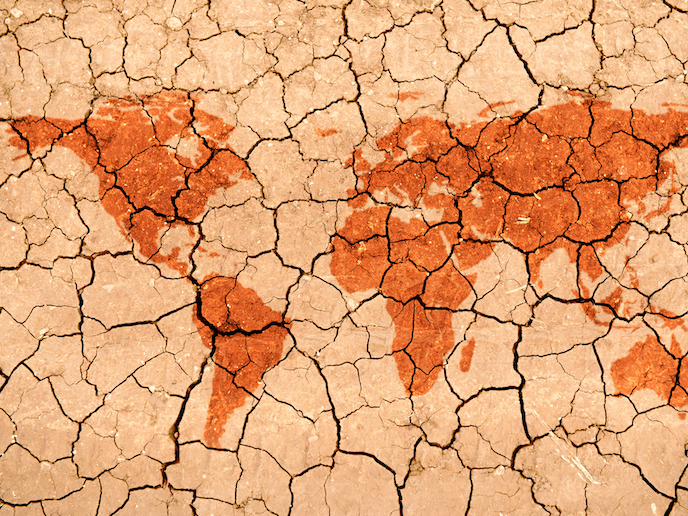Climate change acerbates conflict but doesn’t cause it, yet
The CLIMSEC project, supported by the European Research Council, has explored multiple pathways potentially linking climate variability to political violence, focusing especially on food security. Food security included both impacts on rural livelihoods and incomes, alongside food price shocks that can trigger urban consumer unrest. A key finding was the importance of context. For example, droughts with similar characteristics can result in very different outcomes between societies. Low socio-economic development, ethnopolitical exclusion and a recent history of violence, were found to increase the chance of conflict in response to climate change. “Climatic conditions play a modest role in shaping political violence when compared to core political and socio-economic factors. This will likely change with increasingly frequent and more severe weather patterns,” says CLIMSEC’s principal investigator Halvard Buhaug from the Peace Research Institute Oslo. Some of CLIMSEC’s findings have been cited in concept notes developed for recent UN Security Council debates on climate and security. Buhaug contributed findings to the Sixth Assessment Report of the UN Intergovernmental Panel on Climate Change. Additionally, the project’s results have fed into the deliberations of Norway’s Ministry of Foreign Affairs, now on the UN Security Council. These deliberations considered climate security a high priority.
The difficulties of determining causation
The key challenge CLIMSEC faced was trying to account for the complexities of the relationship between nature and society, and vulnerability and conflict. Social groups don’t start fighting because of unseasonable temperatures but because of pre-existing vulnerabilities, limited financial assets or political marginalisation. When violence erupts it is often facilitated by access to weapons and know-how, usually as a result of recent conflict. While global in scope, CLIMSEC’s empirical open data sources focused mainly on sub-Saharan Africa, where there are widespread conflicts and economies sensitive to environmental changes. Sources included conflict data coded from analysis of news reports, socio-economic data from statistical organisations, like UN agencies, and environmental data from weather monitoring. Afrobarometer population surveys were also used for additional context. "We complemented country-level analysis with research on distinct social groups, providing context about local conditions and resulting in several publications,” explains Buhaug. The team found that climate variability is more likely to prolong or increase the frequency of conflicts, than spark outbreaks. It is also more a driver of low-level, localised violence, such as land-related disputes, than of major armed conflict within or between states. In both scenarios, climatic conditions appear secondary to the prevailing political and socio-economic conditions. There is a stronger connection between rapid food price increases and urban social unrest in the Global South. “But we need to be careful attributing this to weather. Food prices are also the result of domestic policies, inflation, market speculation, and transportation and fertiliser costs,” adds Buhaug.
Forecasting the human cost
CLIMSEC also used forecasting tools. By applying a technique called out-of-sample forecasting, climatic conditions were found to contribute little to accurate predictions of near-future armed conflicts or migration flows. CLIMSEC similarly explored the long-term implications of conflict risk on societal development, using climate change impact assessment data. Their findings indicate that by the century’s end, the global average risk of conflict could be up to four times higher in the more pessimistic development scenarios than those prioritising sustainable development. This increase is expected to be higher if climate change impacts are taken into account, something the team is currently working on. “Our findings highlight the importance for policymakers of the trajectory of conflict to climate impacts, rather than the reverse which is the typical focus,” concludes Buhaug.
Keywords
CLIMSEC, conflict, climate change, sustainable development, migration, food, sub-Saharan Africa, violence, livelihoods, incomes



